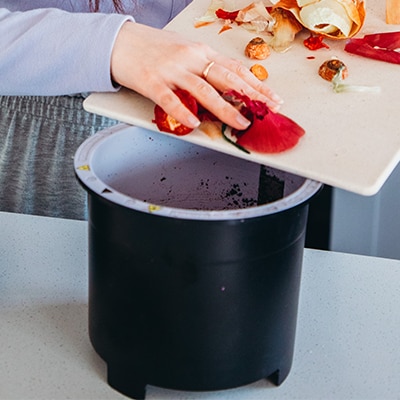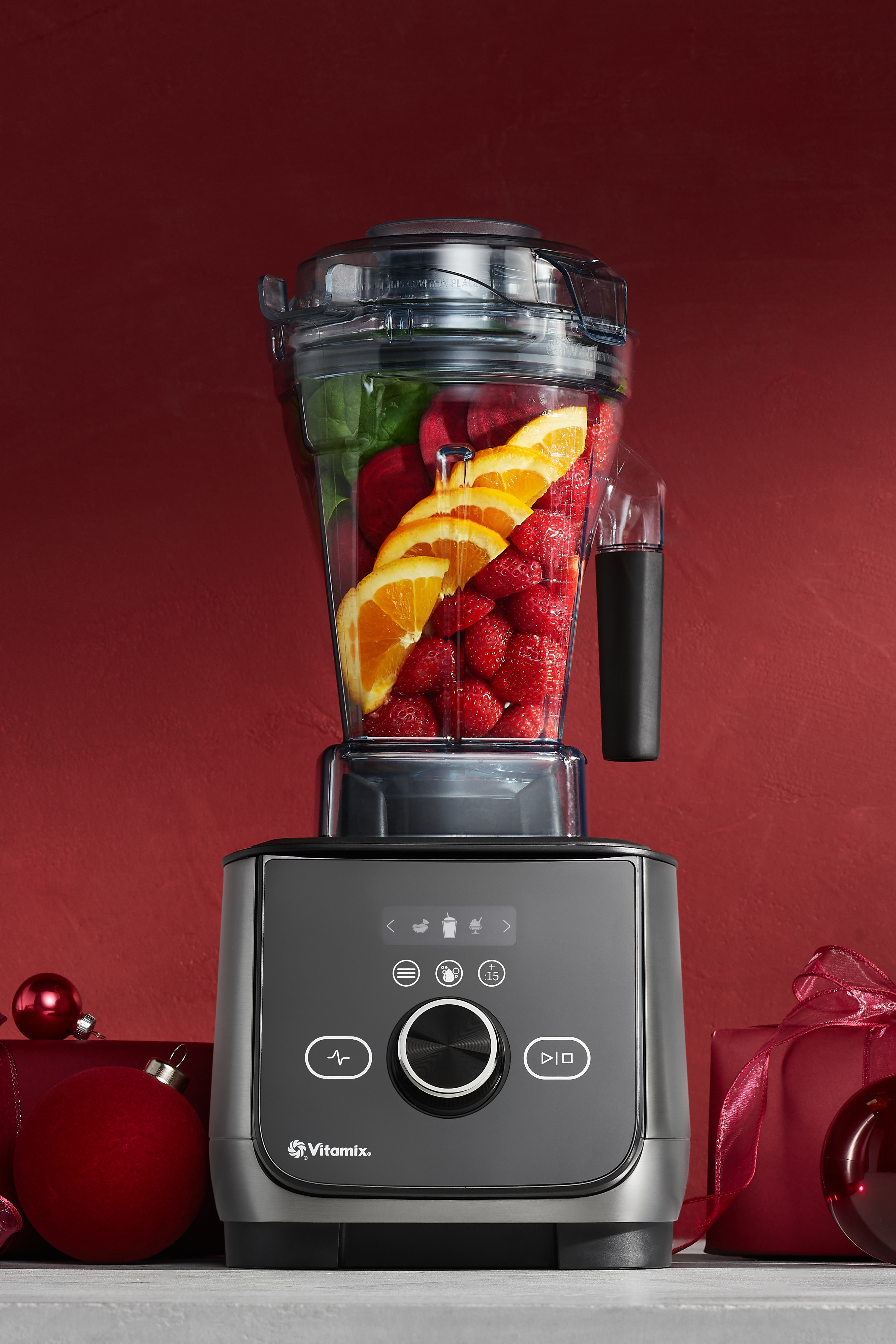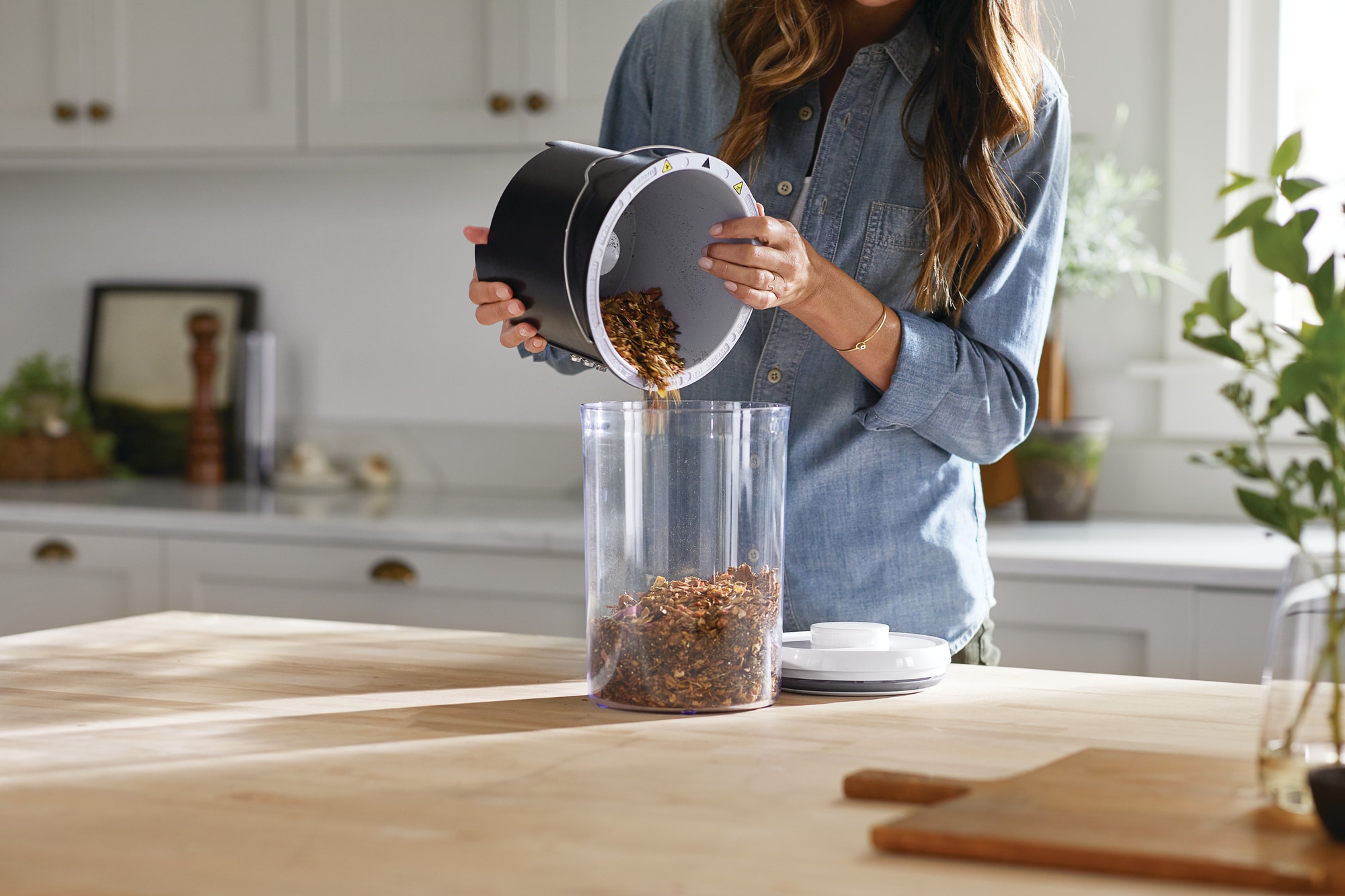As we enter into spring, a lot of people will be spring cleaning and decluttering. Everything will feel so fresh! One place that often gets overlooked, however, is the kitchen. I would say the kitchen is where I produce the most waste. It's something I talk about often on my podcast No Trash Talk. Like I often say, sometimes food packaging is unavoidable. But what really hurts my heart is knowing how much organic food material is thrown out daily from leftovers that were left too long, forgotten produce, or even just the parts of foods we don’t eat (scraps, stalks, cores, peels, etc.)
Apart from the fact that it is literally throwing away your money, food waste also has a lot of environmental impact, especially in cities without municipal composting systems. I am so lucky to live in Halifax where we have an amazing composting system. However, giving away my food scraps and organics to the city is optional now that I have the Vitamix FoodCycler FC-50! The FoodCycler is a compact kitchen appliance that transforms your food scraps. It's quiet, odourless and super convenient for apartments, condos, and city living and places that do not have a city-wide composting system!

The FoodCycler can fit almost anywhere you have about one cubic foot of space with a power outlet. You can keep the bucket in the kitchen, under the sink, or by the trash can, and store the FoodCycler™ FC-50 in the garage, in a closet, or on the counter. We actually just store both on our counter because it's small, doesn’t smell and is extremely quiet! We normally run it at night, so while we sleep it breaks down our food waste into a tenth of its original volume.
You can put in fruit cores, vegetable peels, dairy, chicken bones and more, so you can see: it really helps reduce kitchen waste! I find that I get the best results when I put in a combination of various plant foods, rather than a lot of one type of food (for example, a mixture of veggie scraps versus a whole bin of one vegetable. And for highly fibrous foods like corn cobs or asparagus, its best if I chop them into smaller pieces rather than adding them in whole. Although sometimes environmental problems seem too large for anyone to try to tackle, it's important to remember that every step you make to reduce your waste is a step in the right direction and it all makes a difference! If you’re like me and want to improve on your food waste in 2021, I highly recommend checking out the Vitamix FoodCycler FC-50!
Want to learn more? Check out Influencer Olivia Bierman's website.
Related Articles

The Easy, Odorless and Convenient Way to Recycle Food at Home
Learn how to use the New Vitamix® FoodCycler® FC-50 and reduce food waste to help our environment.

5 Tips for Reducing Food Waste
Reduce waste while getting more out of each fruit and veggie with these 5 simple tips.

The Rotten Side of Food Waste(Plus 4 Simple Ways To Curb It)
Learn how the vitamix can help you reduce food waste



